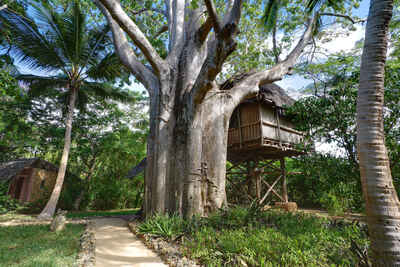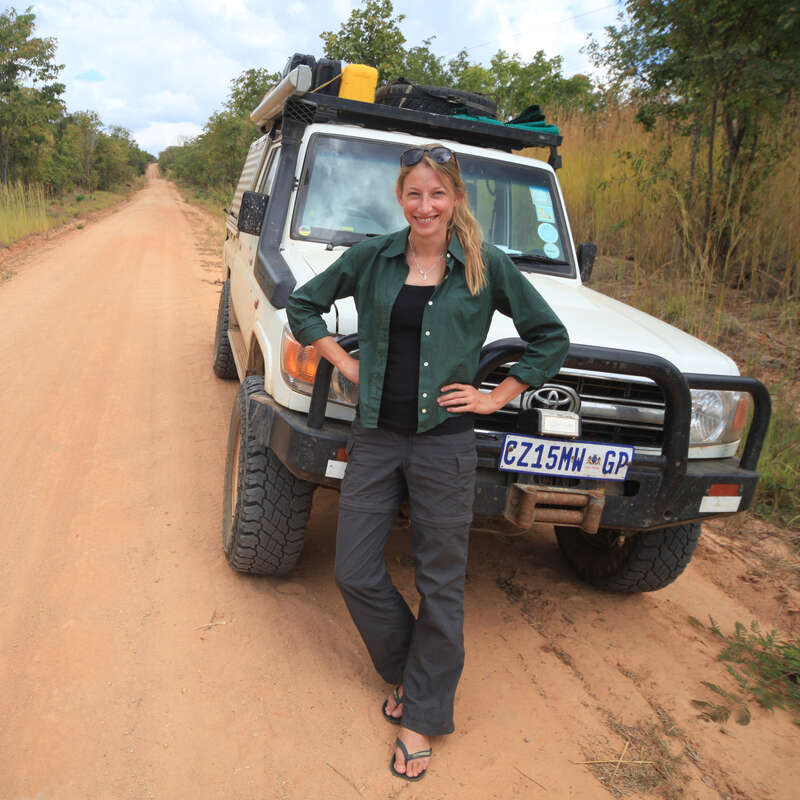About Chole Mjini Lodge
Chole Mjini is one of the most original small lodges that we know in East Africa.
It stands on Chole Island, just off the coast of Mafia Island, which is a peaceful and charming hideaway in an area that sees little tourism. The lodge was built to be environmentally sound, and to give real benefits to the local community. Built among 19th-century ruins, it's all quite Indiana Jones: the ultimate eco-lodge, built before the term became so commonplace.
Chole Mjini is the perfect environmentally sound getaway and it has a wonderful community atmosphere that comes from genuine engagement with its neighbours on the island. This is a high-quality lodge, that pragmatically eschews many of the bells and whistles of modern hotels that we so often take for granted. That means it won't be for everyone, but it makes it very distinctive, and we think it's all the better for it.
Our view
Chole Mjini is the perfect environmentally sound getaway and it has a wonderful community atmosphere that comes from genuine engagement with its neighbours on the island. This is a high-quality lodge, that pragmatically eschews many of the bells and whistles of modern hotels that we so often take for granted. That means it won't be for everyone, but it makes it very distinctive, and we think it's all the better for it.
Accommodation
7 rooms
Children
Fine for children over 5.
Open
15th June to 15th March
Activities

Boat trip

Cultural excursion

Scuba-diving

Snorkelling

Watersports
Traveller reviews of Chole Mjini Lodge
30 real, un-edited reviews from Expert Africa's travellers.
Arrived 16 Feb 2023, 5 nights
"Chole Mjini Lodge review"
Overall rating: Excellent
Arrived 26 Jul 2022, 3 nights
"Chole Mjini Lodge review"
Overall rating: Excellent
Arrived 12 Feb 2020, 3 nights
"Chole Mjini - not really a hit unfortunately"
Overall rating: Average
Arrived 25 Jul 2019, 3 nights
"Chole Mjini Lodge review"
Overall rating: Excellent
Arrived 23 Nov 2018, 2 nights
"My favourite place of the trip"
Overall rating: Excellent
Arrived 18 Oct 2018, 3 nights
"Chole Mjini Lodge review"
Overall rating: Excellent
Arrived 12 Oct 2018, 3 nights
"Amazing Tree House Adventuree"
Overall rating: Excellent
Arrived 25 Oct 2017, 3 nights
"Unusual stay at Chole Mjini"
Overall rating: Excellent
Arrived 7 Oct 2017, 3 nights
"Sleep under the stars in a tree!"
Overall rating: Excellent
Arrived 23 Aug 2017, 6 nights
"Excellent tree houses for relaxed stay"
Overall rating: Excellent
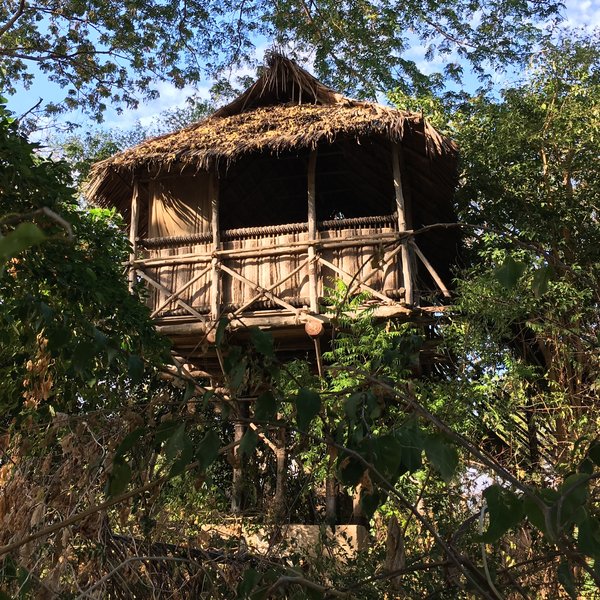
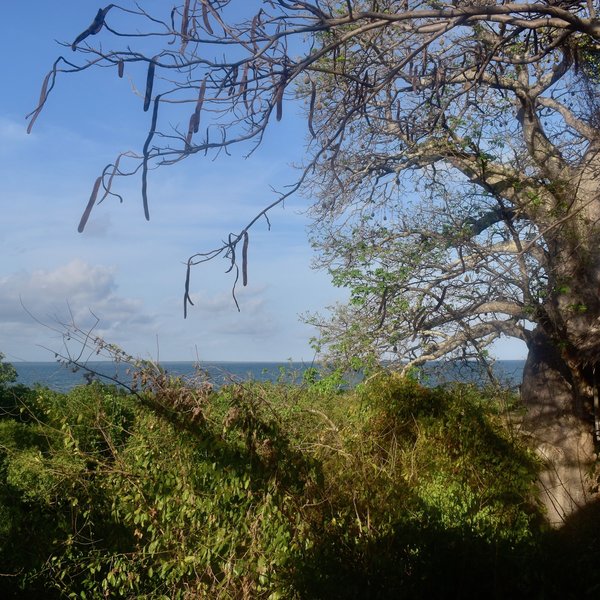
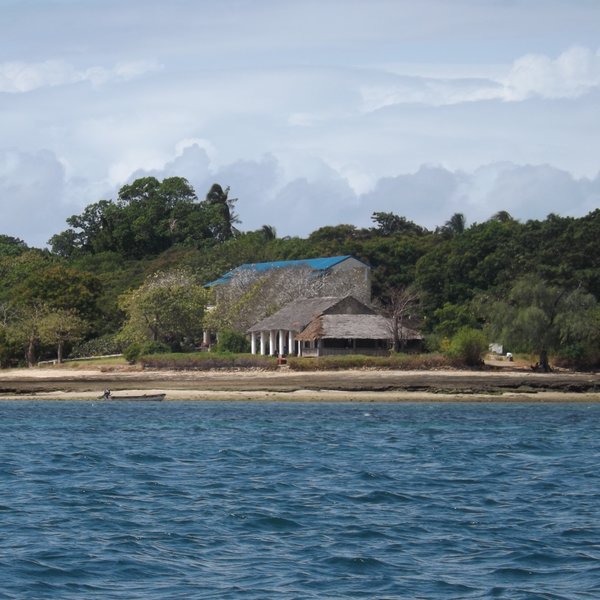
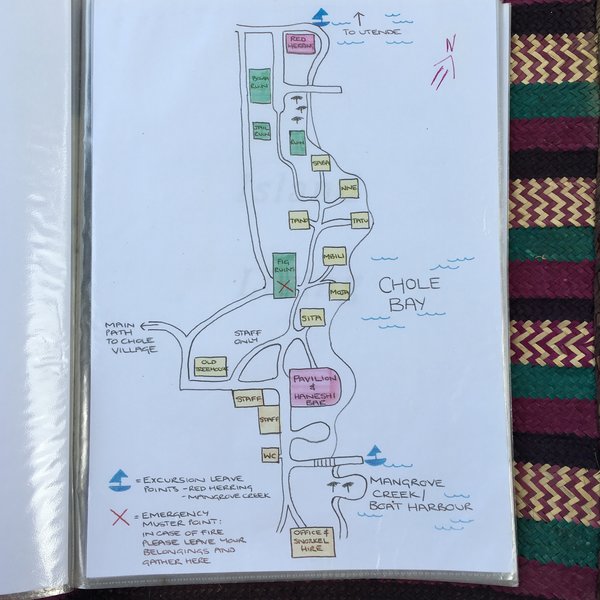
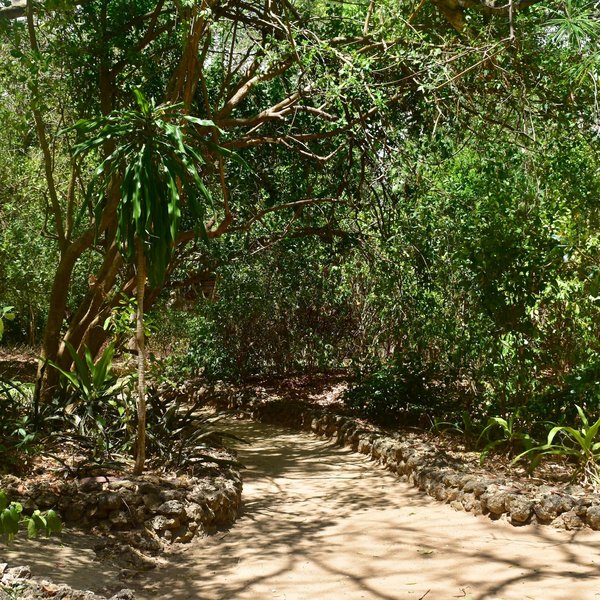
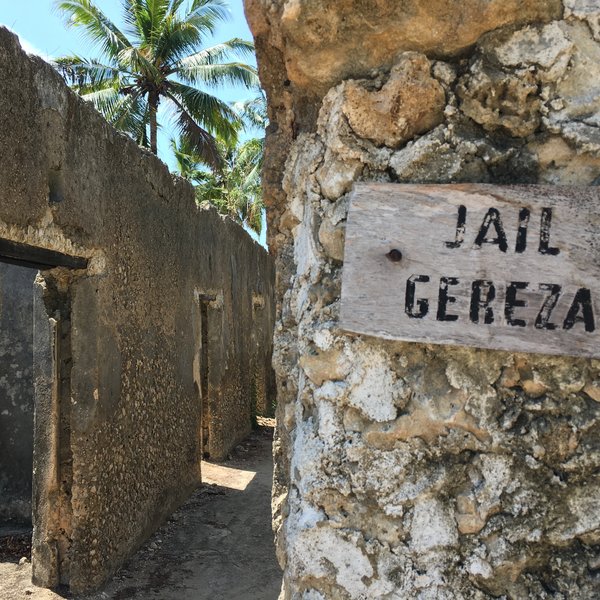
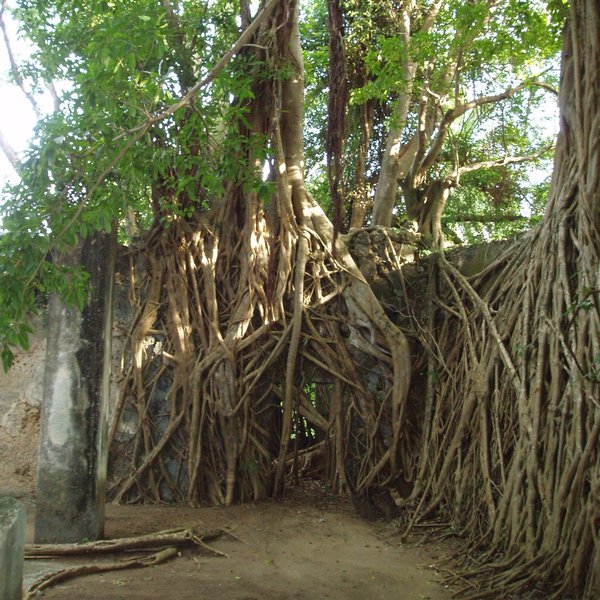
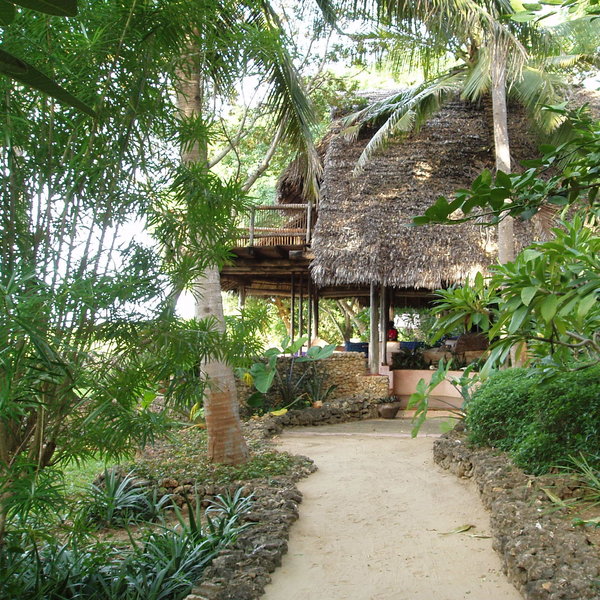
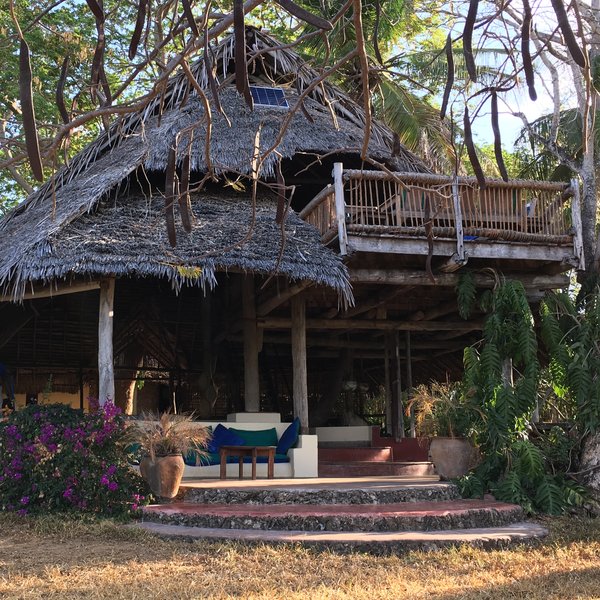
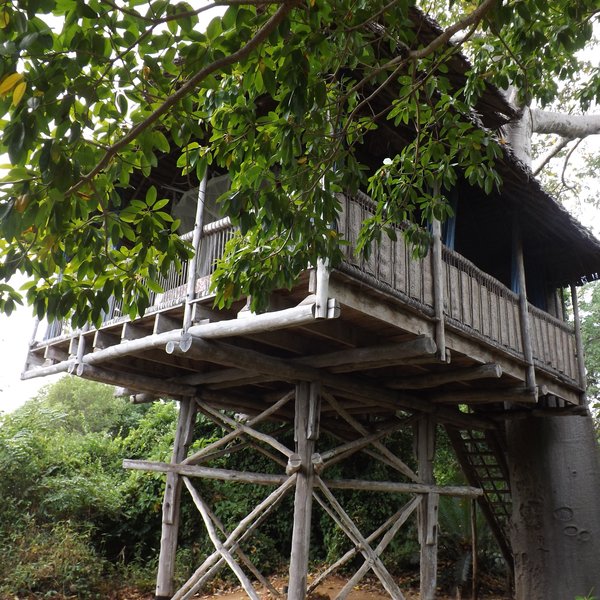
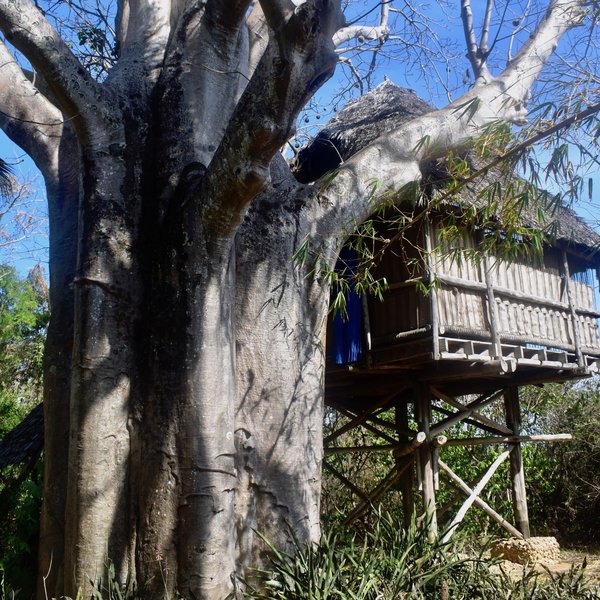
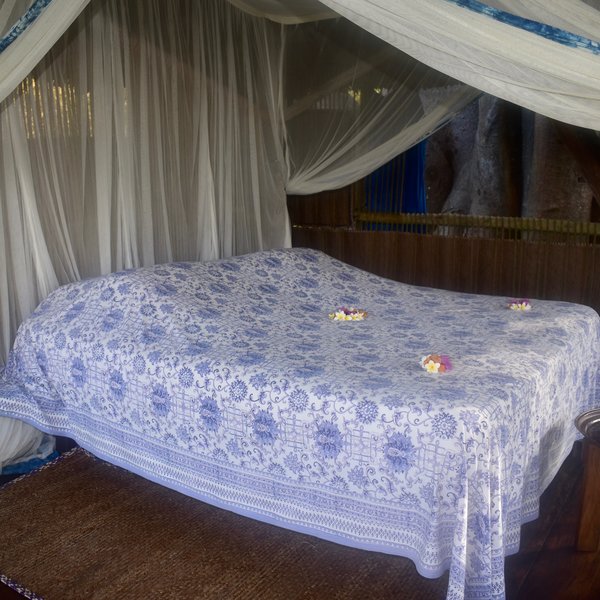
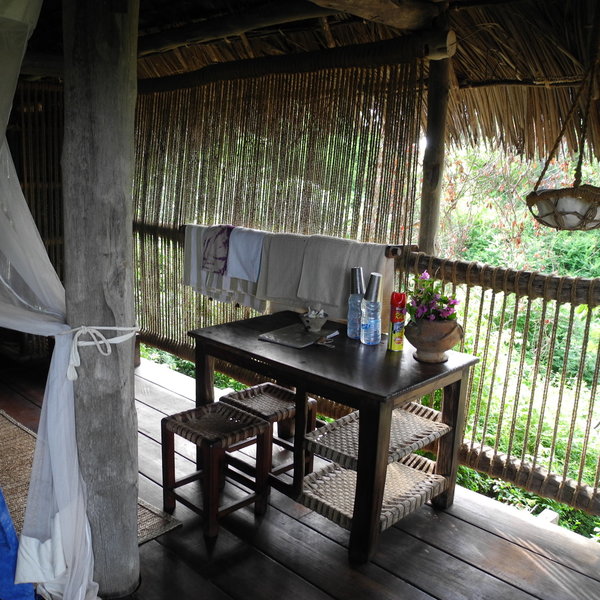
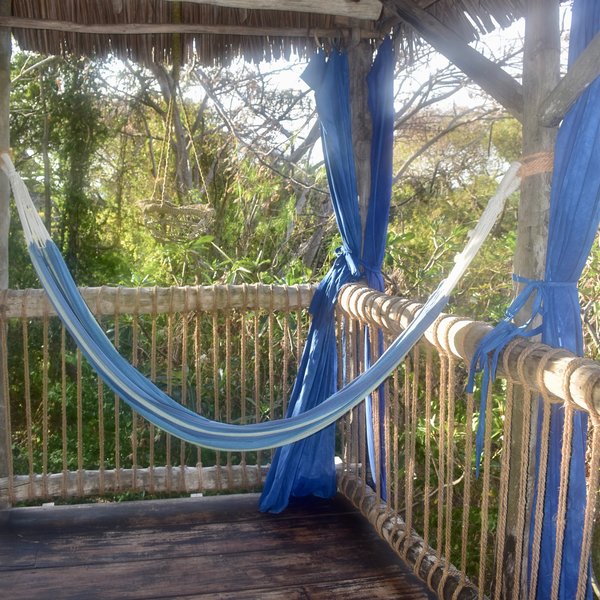
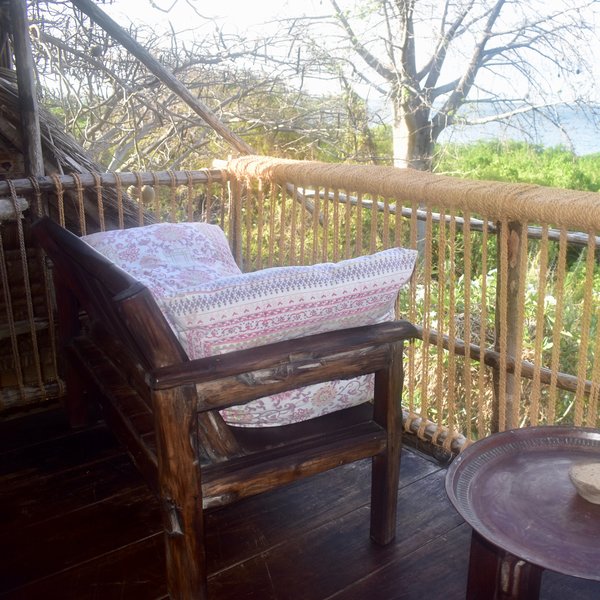
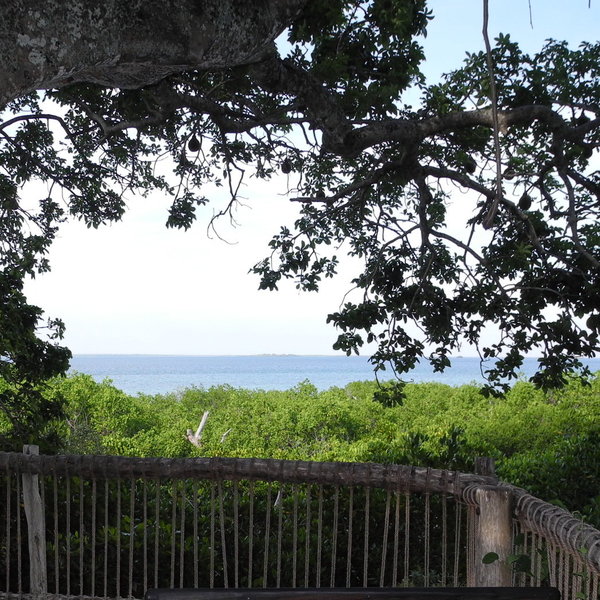
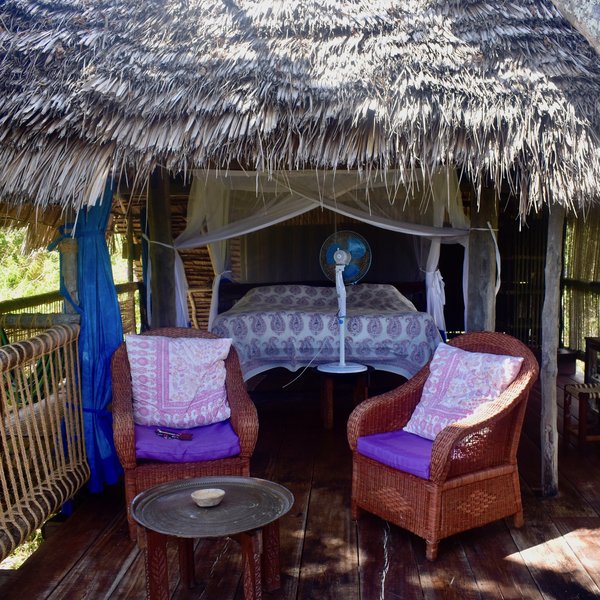
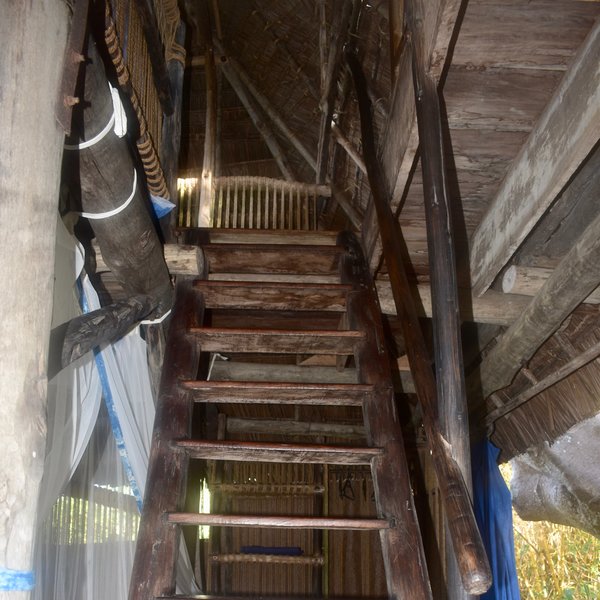
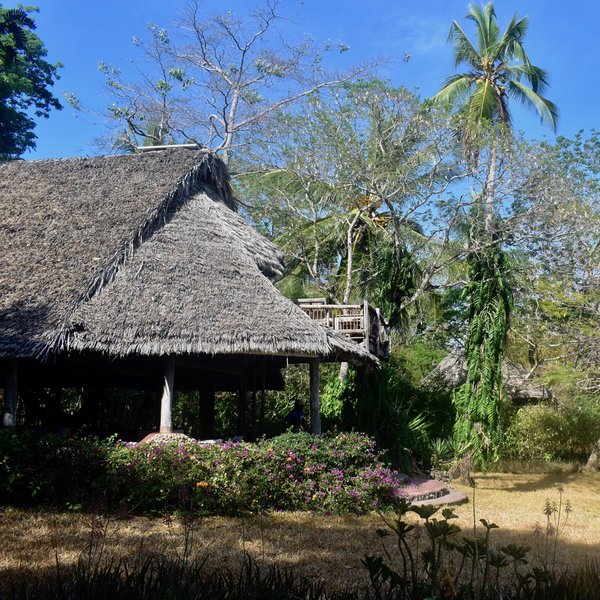
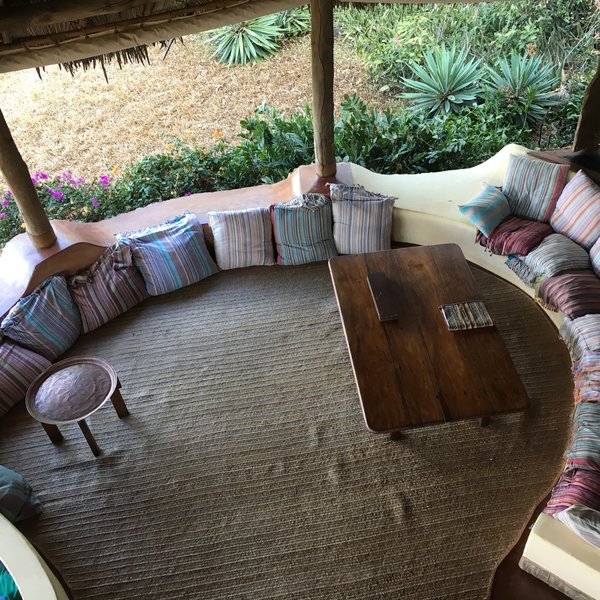
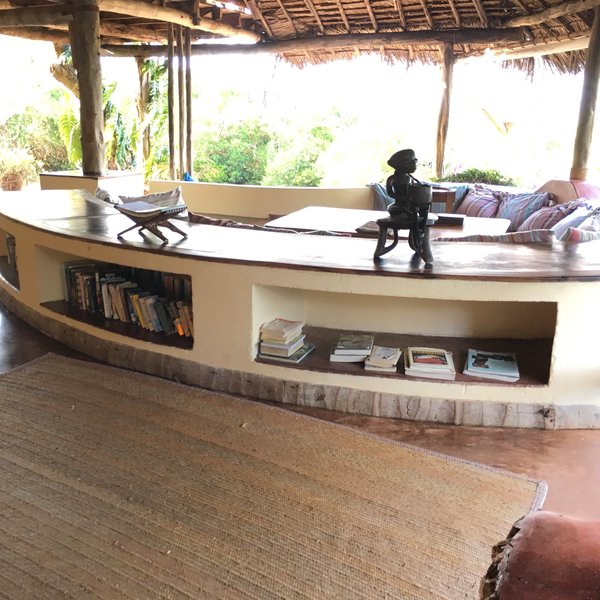
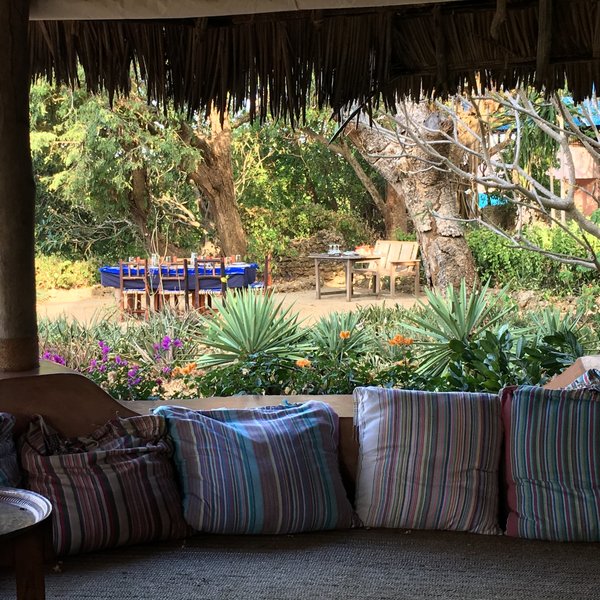
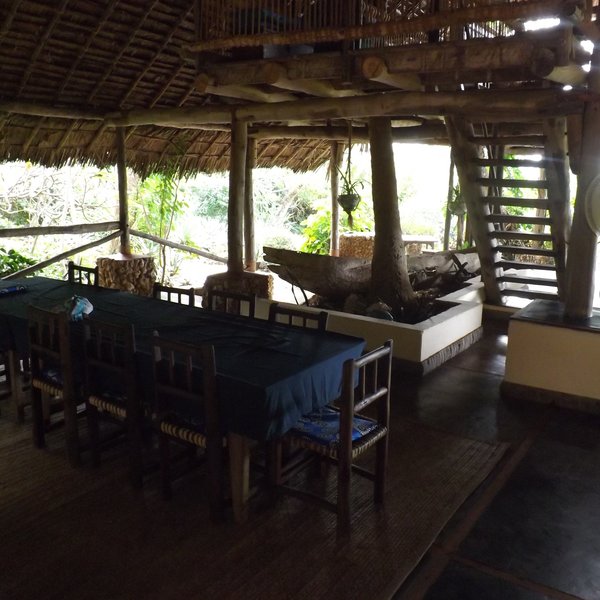
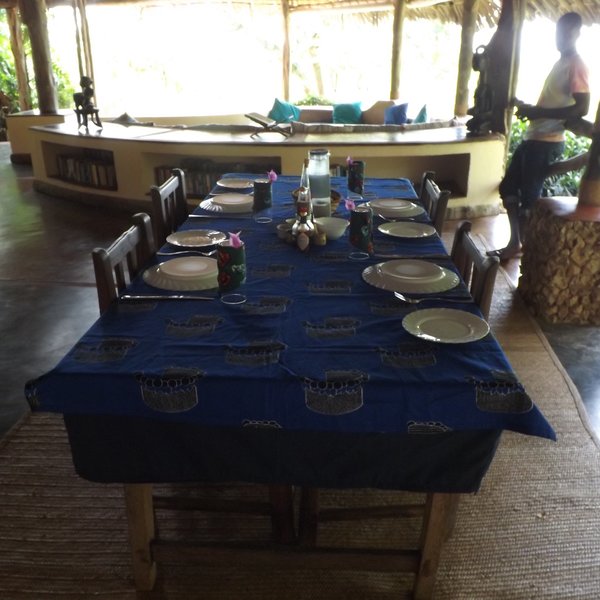
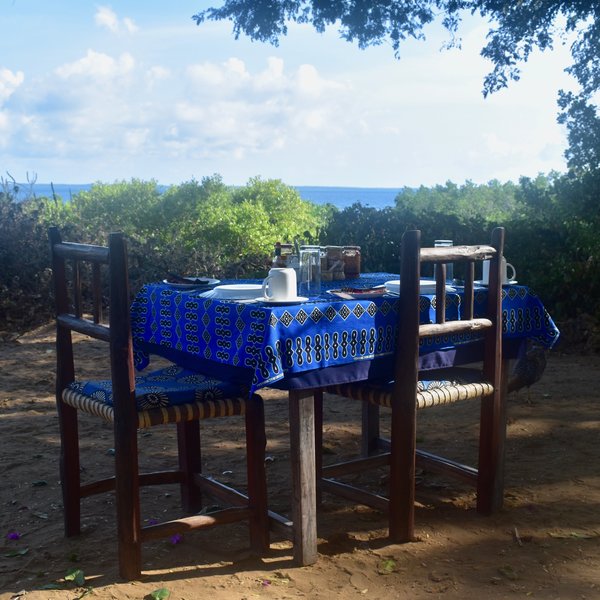
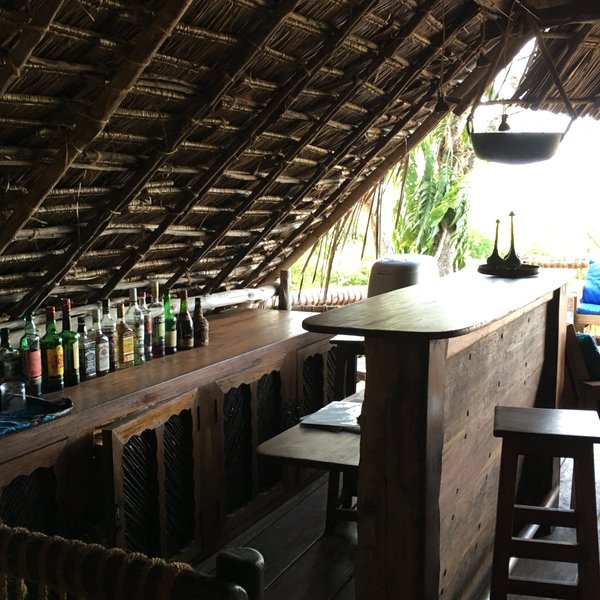
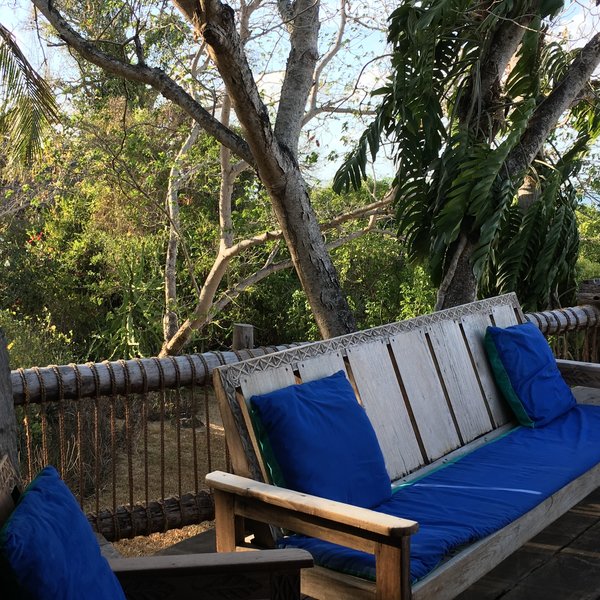
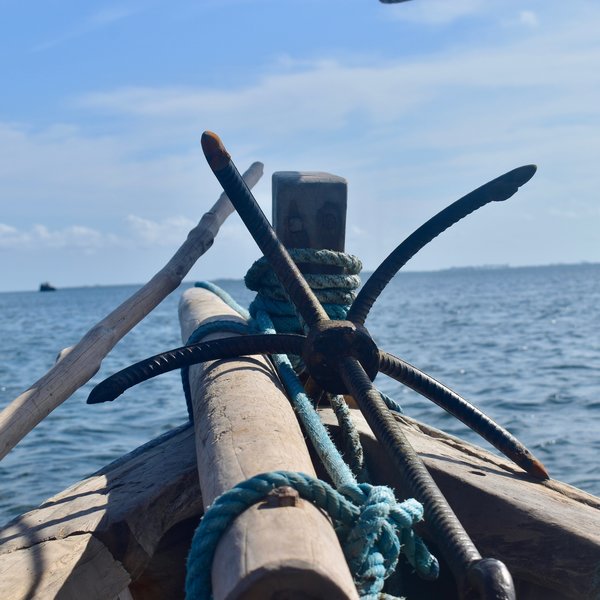
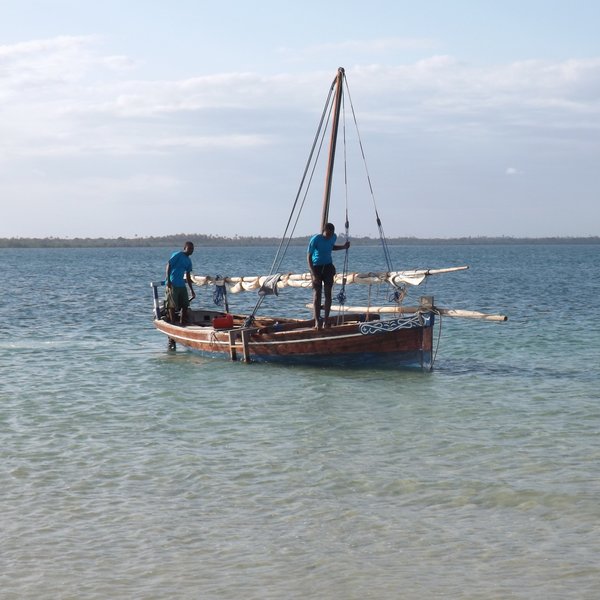
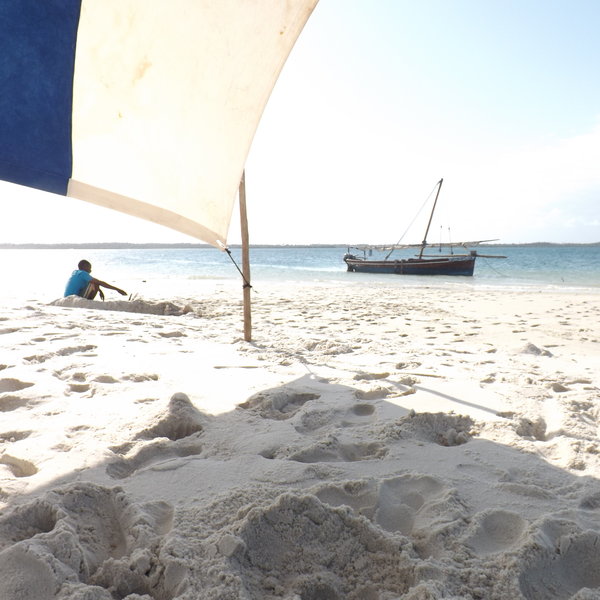
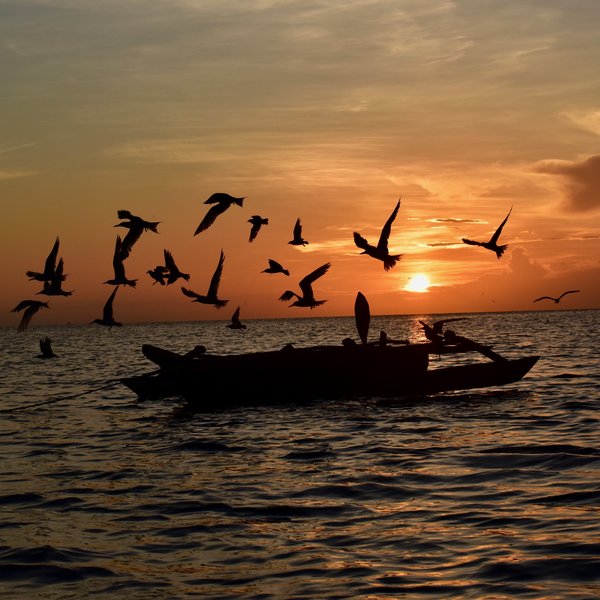
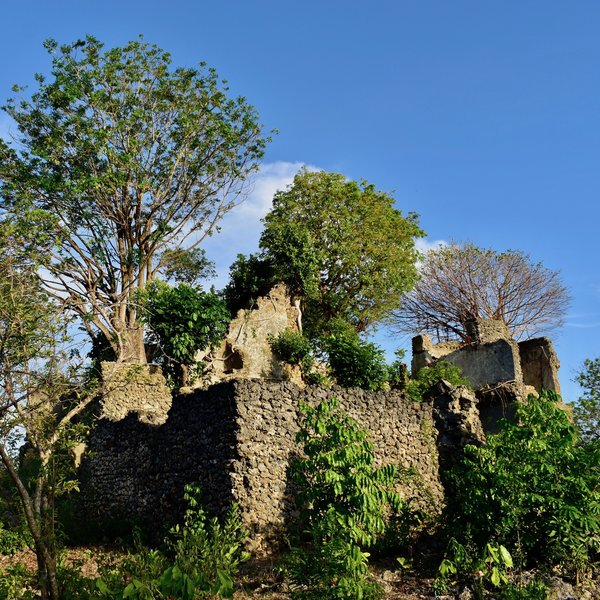
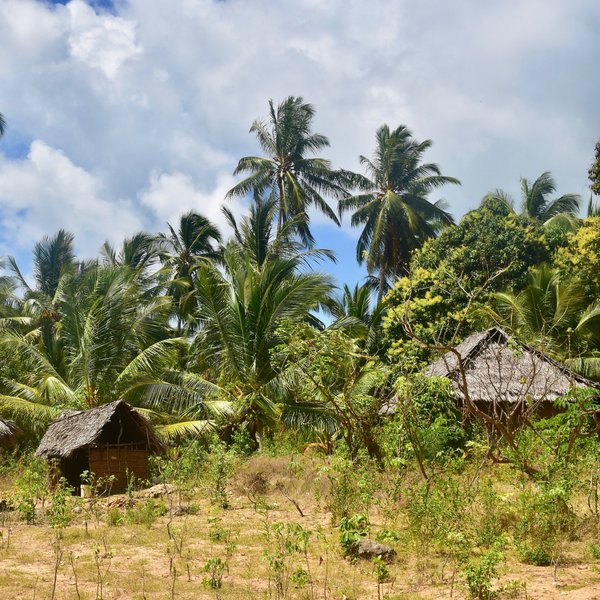
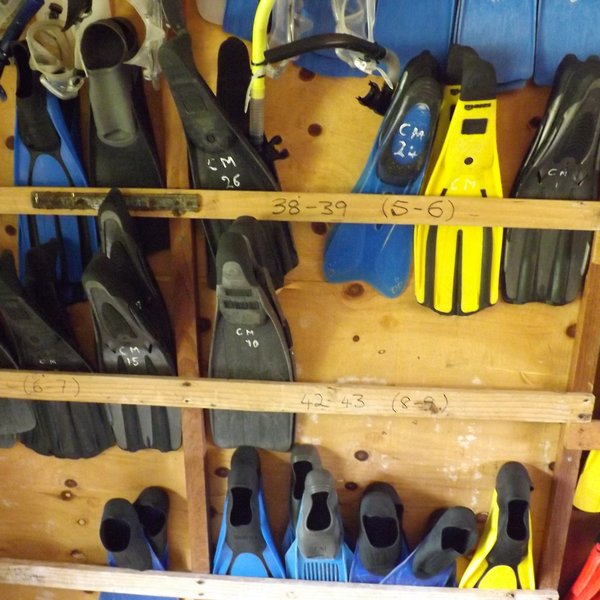
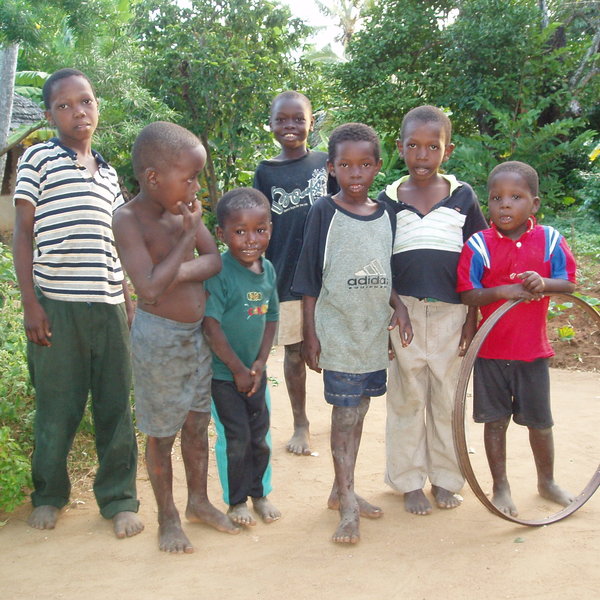
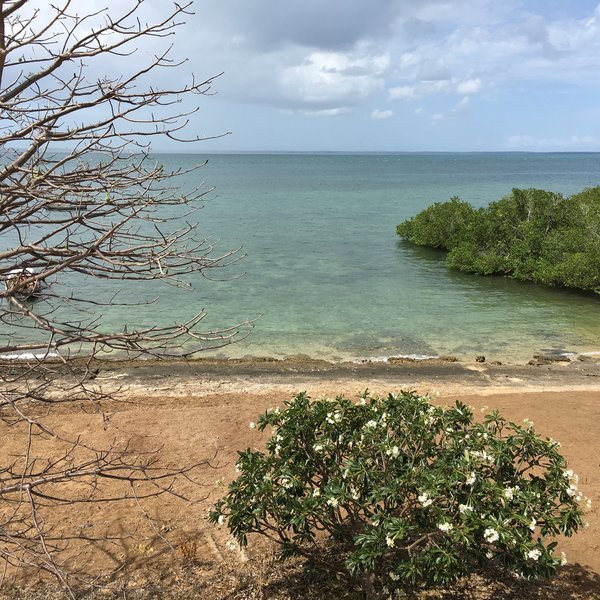
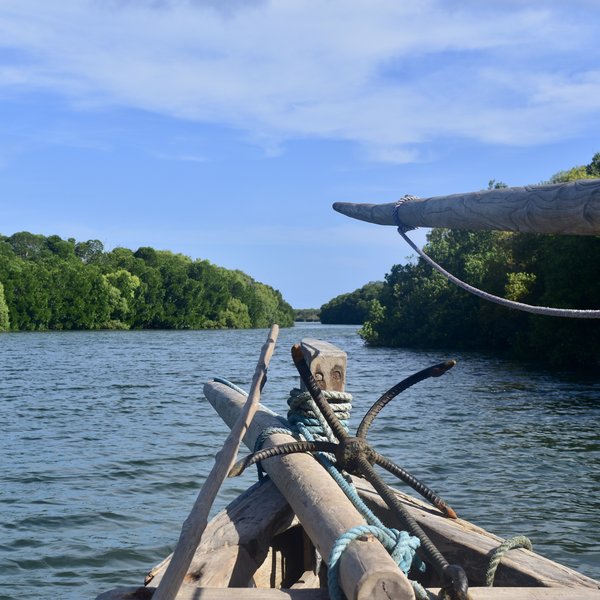
Expert Africa's gallery
When we travel we take lots of photos ourselves to give you a real and un-edited view of the holidays. See our 174 pictures of Chole Mjini to get the candid view.
View galleryHolidays visiting Chole Mjini
Just ideas, we'll always tailor-make a trip for you
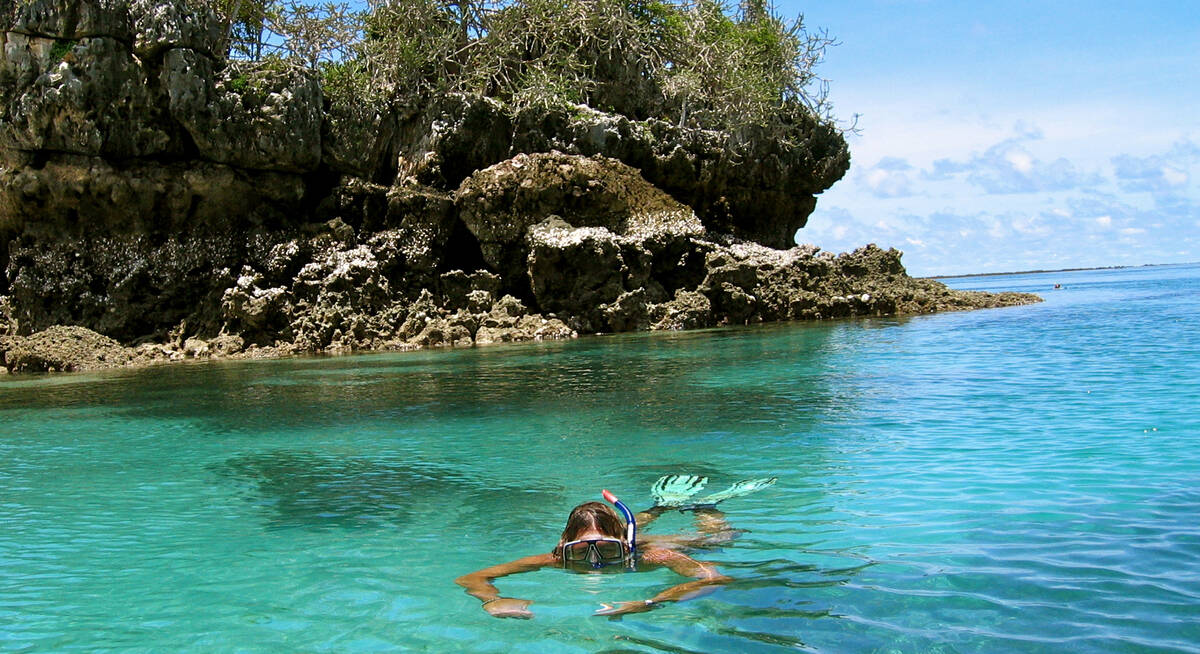
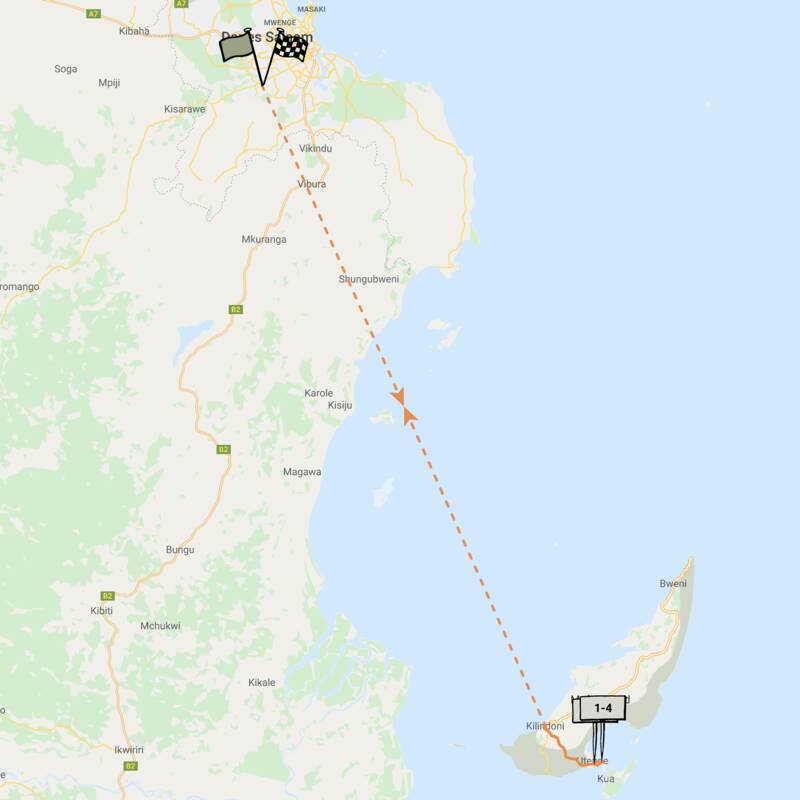
Lemon Grass Beach Holiday
6 days • 2 locations • 1 country
DAR ES SALAAM AIRPORT TO DAR ES SALAAM AIRPORT
Enjoy undisturbed leisure at the Mafia Archipalego’s lesser-visited Chole and Mafia Islands. Two charming, elegant lodges provide opportunity for total relaxation as well as a range of activities.
Visiting Mafia Island
US$2,310 - US$2,850 per person
Chole Mjini Lodge: Our full report
Chole Mjini is one of the most original small lodges that we know in East Africa.
It stands on Chole Island, just off the coast of Mafia Island, which is a peaceful and charming hideaway in an area that sees little tourism. The lodge was built to be environmentally sound, and to give real benefits to the local community. Built among 19th-century ruins, it's all quite Indiana Jones: the ultimate eco-lodge, built before the term became so commonplace.
Arriving at Chole Mjini, you're instantly seduced by the enchanting atmosphere that blends history with pure Robinson Crusoe. After dark, hermit crabs scuttle over the sandy paths, lit by solar lanterns.
South African-English couple Jean and Anne de Villiers established Chole Mjini with a very clear ideology, which contributes hugely to its atmosphere. For a while they took a back seat in the running of Chole Mjini, but we are delighted that they have decided to take over management once again. They have carried on the excellent work that the team at Chole were doing in their absence.
A walk through the nearby village will show you how much Chole Mjini has contributed to local life – including building a local dispensary, a primary school and an adult education centre. Out of the cost of your stay, U$10 per person per night goes directly toward funding community projects.
Chole is a beautiful, spacious lodge, in a historical location. Its communal areas, set in lush tropical gardens, are linked by winding paths that lead past the intriguing ruins of Chole town (the meaning of Chole mjini. The island was settled as early as the 16th century, and it was an important trading port as late as the 19th century. The ruined walls and buildings of the old town can still be seen dotted around the lodge's gardens and in the small area of the port, tangled in vines and wrapped by the roots of giant fig trees.
A large open-sided, thatched banda serves as Chole's lounge and dining area. Here you will find comfy sofas of polished cement, strewn with cushions. The thatched roof and polished cement floors help to keep the area cool, as does the sea breeze. Odd bits of African furniture mixed with Swahili and Arab antiques give Chole a beautiful yet simple coastal style.
From the lounge you can look out over the mangroves at the sea beyond, lose yourself in one of the books from the shelves, set your camera up to snap the endless display of birds by the birdbatch or perhaps indulge in a game of bao. Boards of this favourite East African game are dotted around the lounge: it's fun to learn, and the staff will happily teach you how to play.
Above the lounge and dining area is the Hanashi Bar, with more sofas, built into the rafters of the thatched roof, where guests usually congregate for pre-dinner drinks underneath a star spangled sky.
A short walk from the lounge is a small inlet, where the lodge has a number of dhows for excursions and some diving equipment. It is also perfect for swimming at high tide.
Back at the old port, facing Mafia Island, is the Red Herring Bar, which is owned by Chole Mjini and has Wi-fi. This is where the boat from Mafia Island drops you, and it's the perfect place to watch the sunset and have a few pre-dinner drinks.
Six of the rooms at Chole Mjini are tree houses, set on platforms high up in baobab trees. The seventh slightly more conventional garden room stands on the ground.
Chole's wooden tree houses were built to a very high standard by local craftsmen whose skills were honed building dhows. Although each is slightly different, some being on two storeys, they all share one trait: their general lack of modern conveniences. That being said in 2023 the lodge is currently in the process of slowly upgrading the rooms, to incorporate sun decks and private plunge pools. They don't plan to stray too far from their rustic roots, but we are very curious to see how this balance is achieved.
The lodge operates with solar generated electricity and each guest is issued with a little solar-powered lantern; the loos are composting long-drop toilets rather than flushing ones; and showers are heated by a small but very effective paraffin burner that you light yourself. There's no air-conditioning, of course, but the rooms do have solar-powered fans for those still nights when the open-sided, tree-level rooms don't catch a natural breeze – which is happily the case for most of the year.
Read more about the tree houses at the very bottom of this page.
Helped by Chole Mjini's owner, Jean, we've made a few notes here on some of the quirky individualities of the rooms, and added a few pictures at the bottom of this page.
If you like the sound of these rustic features – then staying in a tree house at Chole Mjini is an experience you won't forget. It's worth noting that much as the tree-houses all have their quirky idiosyncrasies, you can't guarantee which one you will be booked into unless you make a premium booking well in advance. Please ask us about this. Otherwise, you can always ask to be moved to another tree-house - though very few guests are disappointed whichever one they are staying in.
Activities are very much a part of most visitors' time at Chole Mjini: this is a place to do things, as well as relax. All the ideas are very flexible, and a lot depends on the tide, and what the various guests want to do, as you will often be sharing, especially where a boat is required. We were amazed at how much there was to do on such an apparently sleepy island.
The Chole team can organise dhow trip, typically a sunset sail, sometimes to a remote sandbar, where you can relax on a beach surrounded by the sea. We really enjoyed these trips, and the lack of a private beach next to the lodge was never an issue. Activities are at extra cost, however when we were here in 2018 these were all very reasonable, with snorkeling around $25 per person. There are a range of snorkelling locations, from the vast, shallow coral gardens in the Chole Bay to smaller reefs around rocky outcrops. The marine life is beautiful!
With a day's notice, Chole Mjini can organise diving in conjunction with Mafia Island Diving on Mafia mainland; the dive boats go right past Chole Island, and so there is no real need to go to Mafia main island. All the waters around Chole lie within the Mafia Island Marine Park – and Chole Bay itself is ideal for novices, with relatively protected and shallow waters (mostly less than 20m), yet with some good coral and marine life and some excellent drift dives.
More advanced divers head out on an old sailing dhow to explore outside the bay – where various reefs, passes and wall dives go down to about 30m, with even more spectacular marine life. Having dived both here and all around the Zanzibar Archipelago, we regard the diving here as some of the best in Tanzania – and probably the best for sightings of large individual fish. We've seen potato cod, giant grouper, barracuda and white-tipped reef shark on recent dives here.
But it's not just diving that's great here. Guests can explore the Kua Ruins, visit Chole Village, snorkel in the blue lagoon on the neighbouring island of Juani, go on sunset cruises, and at certain times of year arrange humpback whale-watching, snorkelling with whale sharks and trips to see turtle hatchings.
Whale-shark boat trips are run with Kitu Kiblu ('Little Blue Thing' to distinguish it from another operation, 'Big Blue'), which is largely the child of Jean and Anne, and the best way to meet the whale sharks on Mafia. This setup is entirely staffed and run by Mafia locals and overseas interns, and based out of a visitor and research centre on the west side of the island near Kilindoni. Kitu Kiblu run truly responsible whale shark encounters which fully adhere to the local code for how to interact with these gentle giants. A research biologist who has been studying the sharks for years, often accompanies the trips and provides fascinating insights into their surprisingly little-understood natural history and behaviour. Transport, breakfast, wet suit, booties, fins, mask and snorkel are all provided, as are drinks and fruit on board. There are outdoor showers at the end of the trip. Just bring towel, sunscreen and a Gopro if you have one. The trip costs approx $100 per person, based on a minimum of four people, and you can expect to be out at sea for 3 to 4 hours, or longer if encounters are proving difficult. It is a really magical experience!
There is also some very simple accommodation with shared ablutions at the Kitu Kiblu base 'Kitu Kiblu Beach Houses', so if your sole focus is the whale sharks, you are not looking for any luxury and you plan to go on multiple boat trips, this might be suitable. Please ask us for more details on this option.
Back at the lodge, Chole Mjini's close relationship with the village means that it's a great base from which to explore; you can do this by yourself, but we recommend heading out with a member of staff. Wander off in the late afternoon and you'll usually see a huge colony of large Comoros fruit bats starting to wake up before the nightly foray to their feeding sites on Mafia Island. You'll pass by the local hospital, various Tanzanian political party headquarters, and the village square with its community TV room.
Activities
Boat trip
Cultural excursion
Scuba-diving
Snorkelling
Watersports
Families & children
- Attitude towards children
- Children over the age of two years old are welcome at Chole Mjini. This restriction is primarily due to the open-sided tree-houses, which would not be safe for very young children.
- Property’s age restrictions
- No children under the age of two are allowed to stay at Chole Mjini.
- Special activities & services
- Childminding can be arranged – though parents should be aware that a childminder would be a local islander from the housekeeping team, and would not have any childcare qualifications.
- Equipment
- No
- Generally recommended for children
- We would not recommend Chole Mjini for very young children – the tree houses are a slight hazard. Nor is it great for children who are addicted to electronics, but for more independent and adventurous spirits, this is a magical getaway.
Food & drink
- Usual board basis
- Full Board
- Food quality
- The food at Chole is very good and was delightfully fresh and imaginative. On your first night you will be invited to join the managers and other guests for dinner. Then on subsequent nights you have the choice to dine separately if you like.
Breakfast is very flexible in its timing to allow for individual activities, so most people have breakfast in their own groups. Expect fruit, plain and sweet bread, chia porridge, and (usually) yoghurt made by the lodge team. Eggs can be served in a variety of ways, but they don't offer bacon or pork sausages.
Lunch is light and tasty, usually a buffet of salads, vegetables and a meat dish – all you would wish for on a hot day – and generally eaten at the communal table. On our last visit we had a fresh seafood paella served with a local kachumbari salad, this wad followed by homemade icecream.
Dinner is a sociable, three-course occasion, with a dinner-party atmosphere and served in a different location each night. There is usually a set menu – taking dietary requirements into consideration – with table service by the staff. Private dinners can also be arranged for honeymooners, or for anyone else who requests their own table. We started with samosas, followed by freshly caught fish served in banana leaves, sticky rice and seasonal vegetables. For dessert we tucked in to a rich chocolate cake and custard. - Dining style
- Group Meals
- Dining locations
- Indoor and Outdoor Dining
- Further dining info, including room service
- There is no room service here – apart from tea and coffee in the morning.
- Drinks included
- Drinks are not included – they cost around $4 for a local beer, glass of wine or a large shot, and $2 for a soft drink.
Getting there
- Location
- Mafia Island, Tanzania
- Ideal length of stay
- Four days or more – especially if you are a keen diver or really want to unwind.
- Directions
- It is a 30-minute flight from Dar to Mafia island and then a 15–30-minute drive to Utende Beach on the east coast of the main island, depending on how long it takes to get your marine park tickets at the office on the main road. From there it is a short 15-minute boat ride across Chole Bay to Chole Mjini. Please note that there is no jetty at Chole – you will need to wade a short distance in water, so wear clothes and shoes that you don't mind getting wet.
- Accessible by
- Fly-and-Transfer
Special interests
- Family safaris
- The quirky originality of Chole Mjini feels quiet but social, and it's perfect for Tanzania family beach holidays with older children. Most kids love its six wooden tree-houses, the ruins to explore and activities like dhow trips and snorkelling in Chole Bay.
- See ideas for Family safaris in Tanzania
- Honeymoons
- Chole Mjini offers a magical and remote honeymoon to Tanzania, ideal for honeymooners who want something different and who are not afraid to go without some of the usual fittings. Stay in a romantic open-sided treehouse and enjoy the privacy and peace of the Island.
- See ideas for Honeymoons in Tanzania
- Beach holidays
- The best beaches near Chole Mjini are on isolated sandbars, uncovered by the tide and surrounded by coral reefs of the Indian Ocean. Beaches don't come more magical, untouched or remote than this, making it one of the best beach experiences in Tanzania today.
- See ideas for Beach holidays in Tanzania
- Diving & snorkelling holidays
- Scuba diving in Mafia Island Marine Park is superb, and if you come here between October and March you may get the chance to swim with whale sharks.
- See ideas for Diving & snorkelling holidays in Tanzania
- Cultural Experiences
- Chole Mjini was built to benefit its local community, with local people helping to build the lodge. It is a great place to visit if you value being able to interact with village life. Don't miss the walking tour of the village.
- See ideas for Cultural Experiences in Tanzania
- Wellbeing retreats
- Chole Mjini is a peaceful haven that works closely with the local community. Surrounded by nature, birds and stars, it is soul food if you're looking for something that is eco-conscious.
- See ideas for Wellbeing retreats in Tanzania
Sustainability
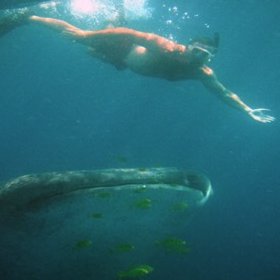
Protecting the giants of the sea
Chole Mjini tells the story of a couple who fell in love with the beautiful waters of the Chole Island, its intricate wilderness and friendly people. However, the jungle retreat is not just a hideaway for 7 treehouses, but also the centre for a series of conservation and community-development projects.
Whale shark protection has become primordial at Chole Mjini. The two owners, Dr. Jean de Villiers Ph.D. and Ms. Anne de Villiers M.Sc., founded Kitu Kiblu, a wholly owned subsidiary of the Chole Mjini Conservation and Development Company Ltd. The aim of the research centre is to raise awareness about whale sharks and support their conservation. In collaboration with Mafia Island Whale Shark Conservation Society (WHASCOS), codes of conduct have been introduced including imposing a fee on whale shark tourism, to protect the animals from exploitation.
One of the main responsibilities at Kitu Kiblu is global spot-pattern photo identification or whale sharks, which seeks to map their migration.
Over the past 20 years the research centre, together with the Chole Mjini Charitable Trust, have built a kindergarten, primary school, medical centre, computer centre, market, women’s centre. They offer scholarships for secondary and tertiary studies, as well as small loans. Kitu Kiblu has also built a library, a computer facility and an English club at the Chole Island primary school with sponsorship from the International School of Geneva.
Guests who feel adventurous can join half-day trips, including a 3-4-hour cruise on a traditional sailing how to search for and swim with the giants.
See more great sustainability projects in Tanzania
Communications
- Power supply notes
- Batteries can be charged in the Red Herring bar between 10.00am and 5.00pm.
- Communications
- There is intermittent mobile phone reception at Chole Mjini and Wi-fi at the Red Herring bar when the power supply is on (10.00am–5.00pm).
- TV & radio
- There is no TV at the lodge, but there is a popular TV spot in the village where the locals congregate.
- Water supply
- Borehole
- Water supply notes
- The water used for the showers is pumped from a well and heated by self-service kerosene heaters. Bottled water is provided for drinking. At the end of the dry season you'll notice some of the foliage around the lodge droops – they're very sensitive to over-using precious community supplies.
Health & safety
- Malarial protection recommended
- Yes
- Medical care
- In the event of any medical problem, the dive centre on Mafia island has first-aid trained staff, and for serious cases clients would need to fly to Dar es Salaam. There are first-aid kits on all of the boats and there is a clinic in the village for first response.
- Dangerous animals
- Low Risk
- Security measures
- There is a large wooden lockbox in each room for valuables. There are also askaris (guards) around the lodge.
- Fire safety
- All the buildings at Chole Mjini are open sided – so in cases of fire it would be straightforward to exit any building. Fire extinguishers, buckets of water and sand are also provided in every tree-house.
Useful info
- Disabled access
- Not Possible
- Laundry facilities
- Full Laundry Service – Included. They use a charcoal iron so please don’t bring your finest silk clothes.
- Money
- Chole Mjini does not offer any currency exchange.
- Accepted payment on location
- Because of Chole's remote location, they prefer guests to pay in cash, using US dollars, pounds or euros. There is a 5% charge for Visa, MasterCard and Amex credit cards. This uses 3G so please notify the managers before departure if this is how you would like to pay.
Plan and book your trip with Expert Africa
All of our trips are tailor-made, so we'll always adapt them to suit you. Talk to an Expert and let us plan and arrange your perfect trip.

Talk to an Expert
Call or email us now! We’ll match you with the Specialist in our team who is best suited to help you. Then together we can start planning your trip.

Set up your itinerary
Based on our experience and your ideas, your specialist will create a detailed, costed itinerary. We’ll refine it together, until we have a trip that you’re perfectly happy with.

Prepare for your trip
The same Specialist will make the seamless arrangements for your trip, send you detailed travel documents, and be available to answer any questions before you depart.

Travel with peace of mind
After you set off, you’ll be cared for by our partners in Africa, most of whom have worked with Expert Africa for decades. And if you ever need us urgently, we’re available 24/7.

When you return
We love to learn about your trip, and so will always be grateful if you’ve the time to give feedback to your Specialist when you return.
Chole Mjini Lodge's location
Look closer at the environment and surroundings of Chole Mjini.
Excursions from Chole Mjini
Optional extra day-trips and excursions possible whilst you're staying at Chole Mjini. Talk to us: these are usually best arranged before you go.

Snorkelling with Whale Sharks
Half day
A whale shark snorkelling trip off Mafia Island, Tanzania, is an unforgettable experience, offering a chance to swim alongside the world’s largest fish in crystal-clear waters. Mafia Island is one of the best places in the world to encounter whale sharks, especially between October and March, when these gentle giants gather in the warm, plankton-rich waters near the island.
More about Snorkelling with Whale SharksOther lodges in Mafia Island
Alternative places to stay in this same area.
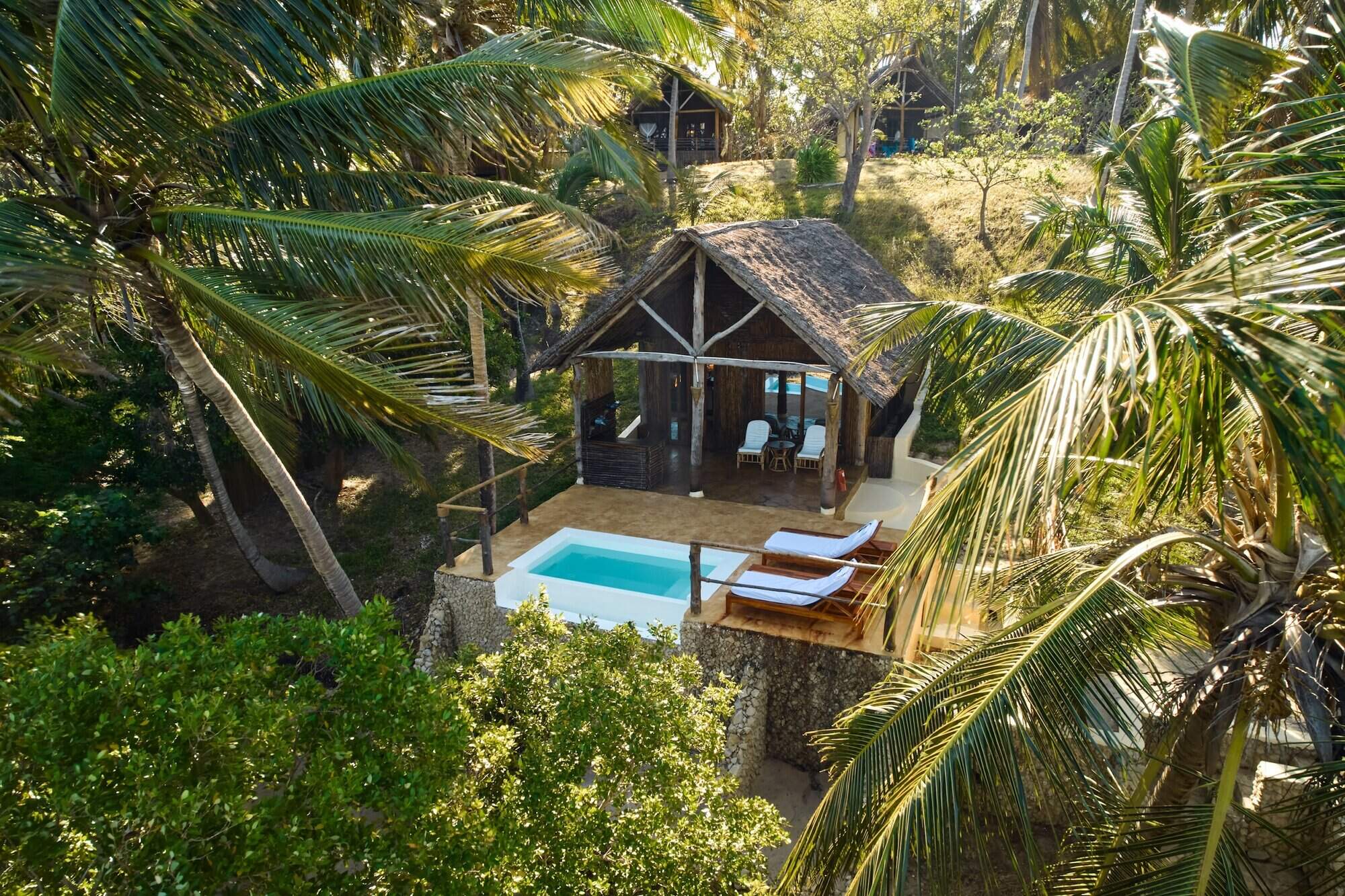
Pole Pole
Pole Pole is a small, quiet beach lodge on Mafia. It's comfortable, almost luxurious, and has a great range of activities.
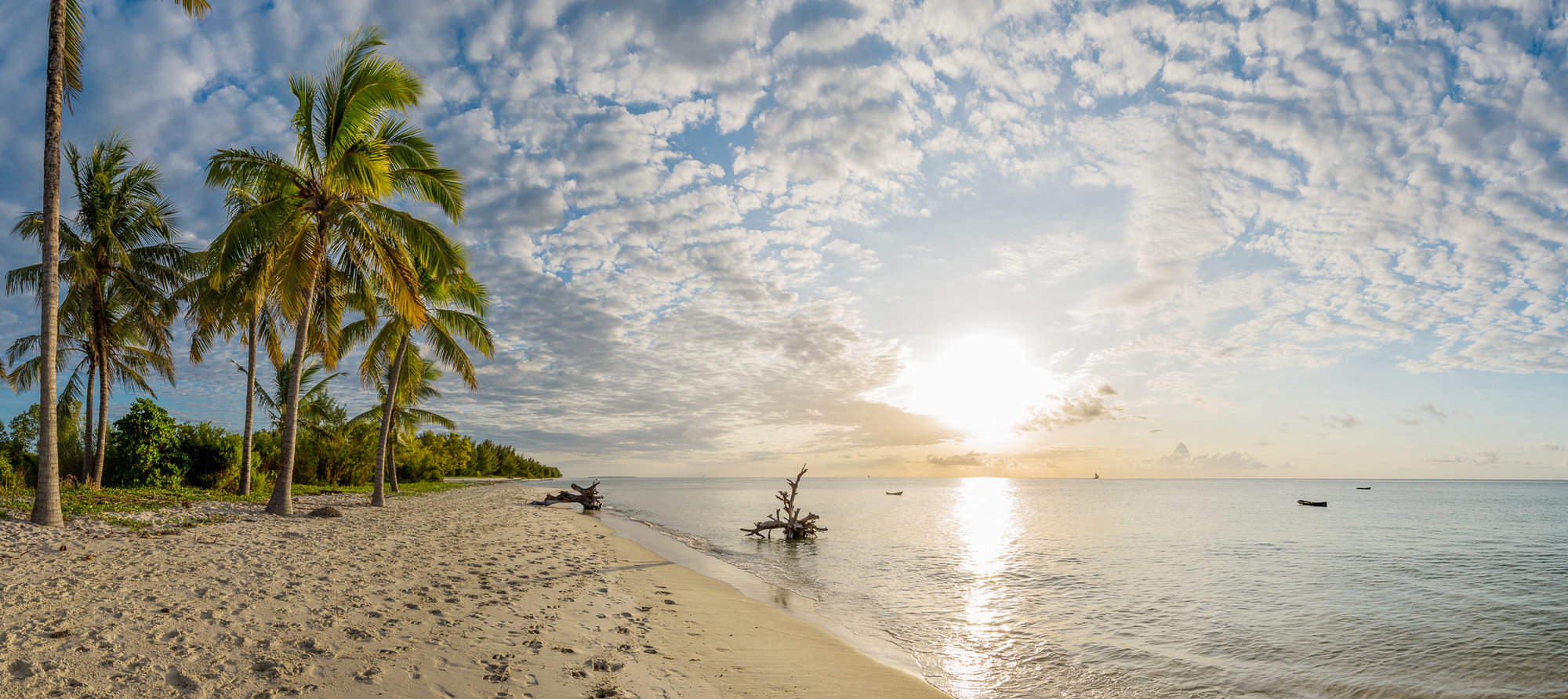
Butiama Beach
Situated just west of Kilondoni, the main town on Mafia, Butiama Beach is a simple beach lodge with friendly managers and a laid back vibe.
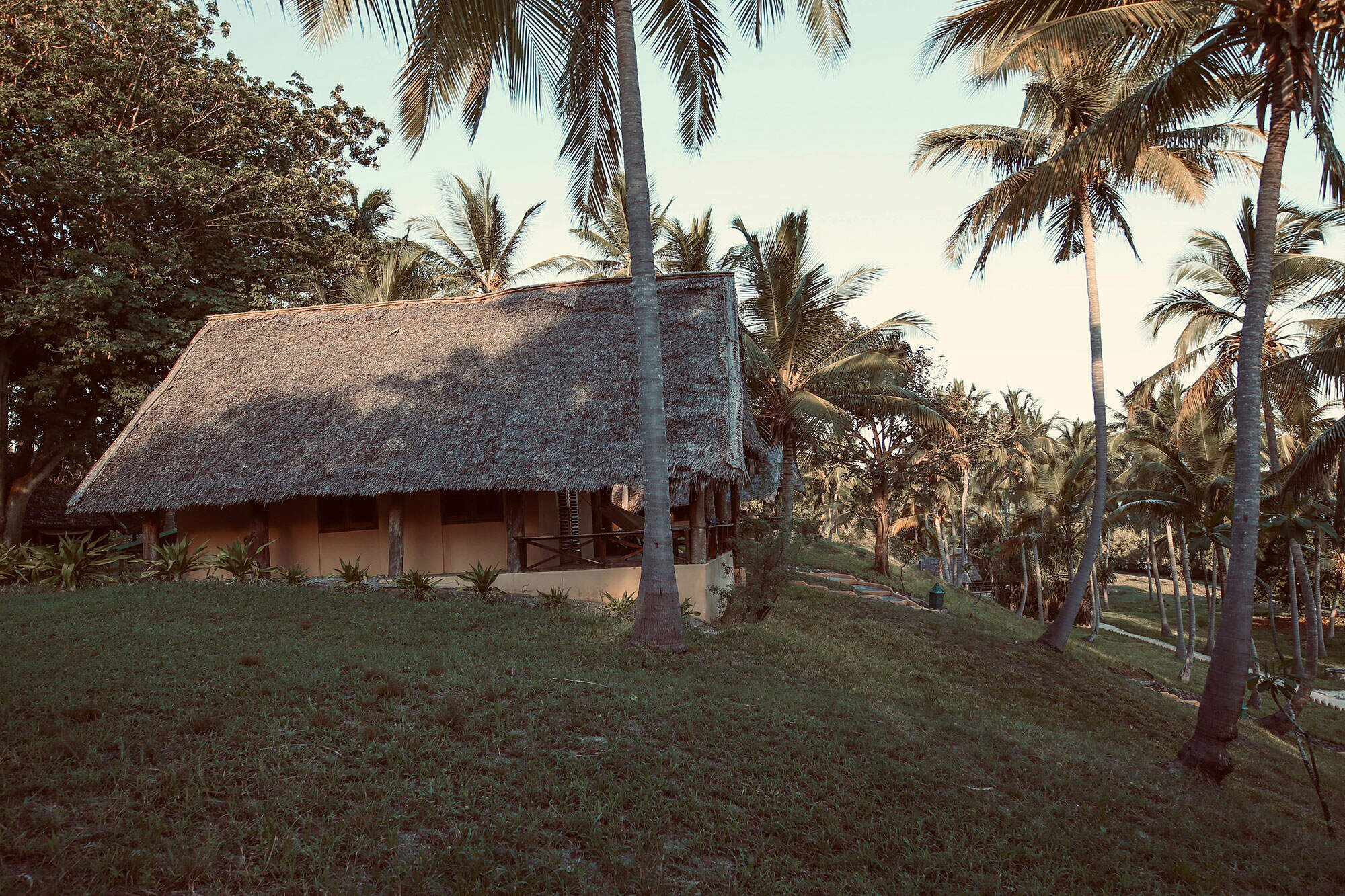
Kinasi Lodge
Kinasi is a small, personal beach lodge on Mafia Island that has the features of a larger hotel, including a large pool and spa.
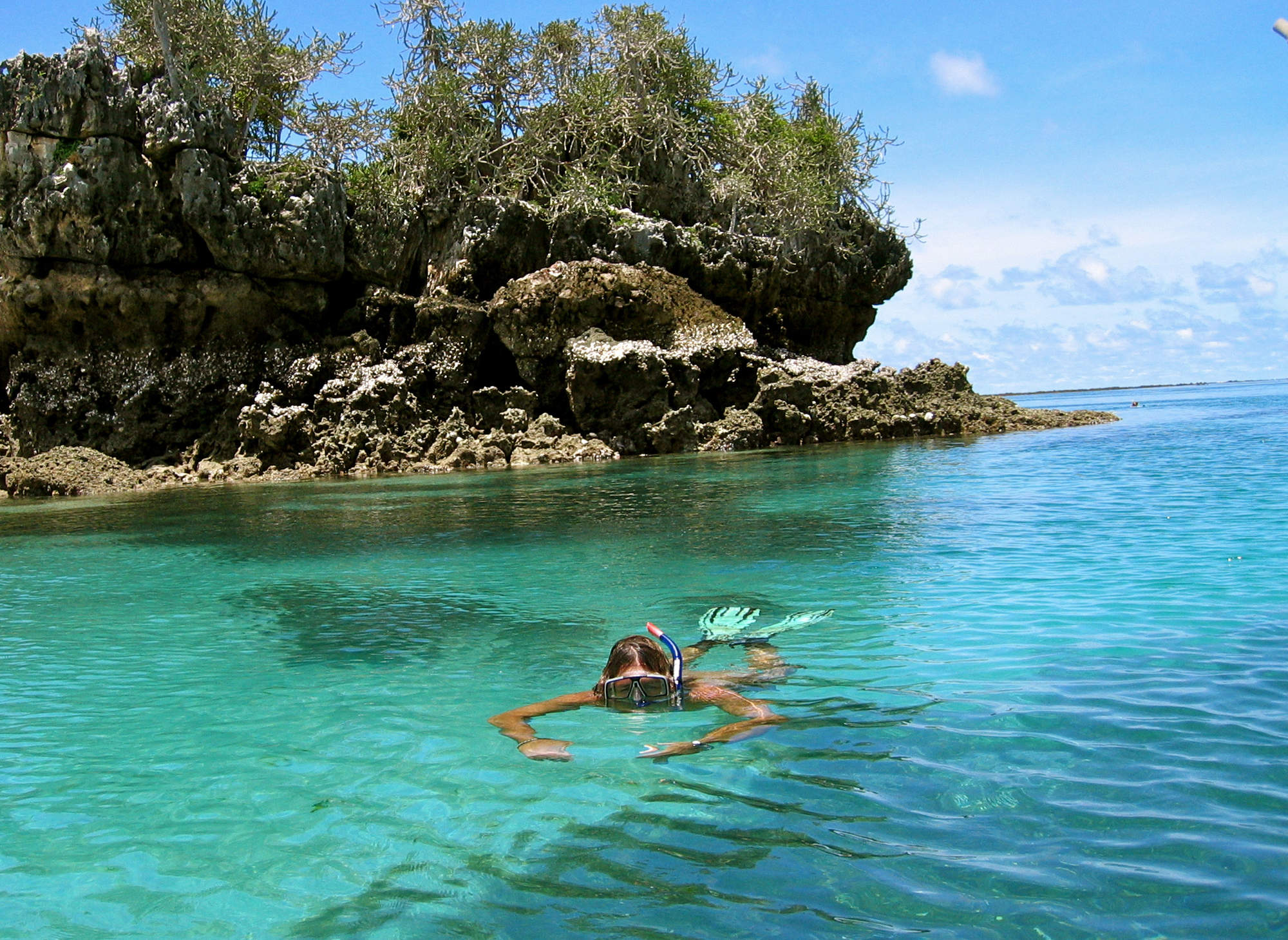
Shamba Kilole
Shamba Kilole is a charming Italian-owned eco-lodge on the coast of Mafia Island, with simple rooms and friendly owner-managers.
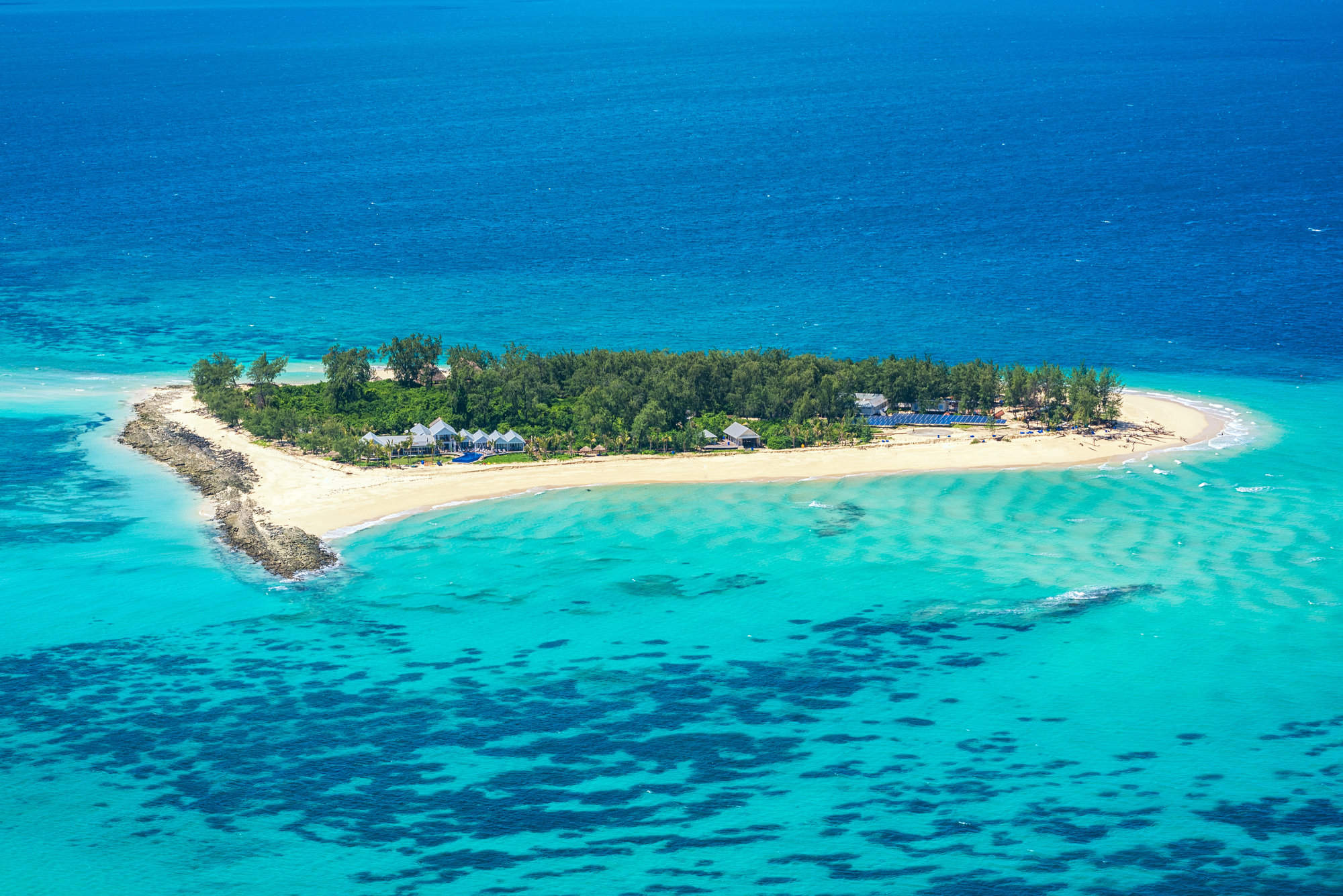
Thanda Island
Thanda Island is a high-end private island destination that caters to just one group of travellers at a time.
When to go to Mafia Island
Our month by month guide: What it's like to visit Chole Mjini in Mafia Island
Jan
Feb
Mar
Apr
May
Jun
Jul
Aug
Sep
Oct
Nov
Dec
Tanzania in January
January usually marks the start of the short dry season, although the exact timings of this are a little unpredictable. You can expect clear blue skies and sunshine, if the short rains have stopped, and the temperatures will be building. The short dry season is a little less pronounced in Southern Tanzania, and so it can still be wet in these areas. It is an interesting time for avians as resident birds go into breeding plumage and migrant species can be present.
Once the New Year busy period has quietened down, January can offer great value and quieter parks, although the weather can be variable, and in the Selous and Ruaha the wildlife is more dispersed.
- Variable weather: clear & dry or cloudy with some rain.
- Occasional thunderstorms may occur.
- A good time of year for birding as and many migrant species are around
- The wildebeest migration is gathering in the southern Serengeti.
- Busy in early January, quietening down through the month.
Our view
A good time to visit, with pros & cons
Weather in January
Tanzania in February
February is during the short dry season and is one of the hottest months in Tanzania, with temperatures reaching around 33°Celsius. This can be a good time to visit, as some areas of the Northern Circuit are comparatively quieter than during the European summer months, and lodge rates are also a little lower.
The wildebeest will typically be on the southern plains of the Serengeti for their calving season, which tends to occur in a 2-3 week window in early-mid February – although this does vary year on year. This is also a particularly rewarding time for birdlife, as northern hemisphere migrants join the resident species.
- Hot and dry weather.
- Wildebeest migration calving on Serengeti’s southern plains.
- Ngorongoro Crater and southern Serengeti busy for the migration.
- Selous and Ruaha are typically quiet at this time.
- The parks are likely to be lush and green, leading to pretty landscape
Our view
A very good time to visit
Weather in February
Tanzania in March
The heavier ‘long rains’ start in earnest in March although exactly when varies year on year. With no need to stay close to permanent water sources, migratory wildlife disperses, and so game viewing starts to become more challenging. This is most prominently seen in Tarangire National Park. The wildebeest migration may still be calving, or have moved on into the central regions of the Serengeti.
Many of the camps in the southern parks close mid March and mobile tented camps in the Serengeti will wind down towards the end of the month in order to move location or carry out refurbishments, ready for the new tourist season.
- Hot with building humidity, before the rains begin at some point.
- Wildlife viewing is variable depending on the start of the rains.
- Parks are quiet and rates are low.
- Not great for southern or western Tanzania.
- March can be a good time for birding, with many migrant species.
Our view
A good time to visit, with pros & cons
Weather in March
Tanzania in April
April is in the middle of the long rainy season and is the wettest month, with on average 250mm of rain. Temperatures are fairly high and humid in comparison to the rest of the year. Expect the bush to be lush and flowering, and alive with insects, birds and smaller animals. It is however also dense, allowing wildlife to hide, which in turn makes game viewing harder. This is a very quiet time in terms of visitor numbers.
Many of the tented camps are closed in April, however the larger lodges remain open. The rates are significantly cheaper, and so if you are willing to work harder to spot the bigger game, some accommodation bargains can be had.
- Heavy rain expected, with impressive thunderstorms and lightning.
- Many camps closed and roads impassable due to ground conditions.
- Rates are at their lowest all year round, with very few other tourists
- Places that are open are green and vibrant, wildlife more dispersed.
Our view
This is not a great time to visit
Weather in April
Tanzania in May
As Tanzania is close to the equator there is no dramatic difference in climate throughout the year, but temperatures do start to drop a little in May. The rains are likely to still be present, although potentially clearing towards the end of the month. Visitor numbers and lodge rates are still low. The wildebeest migration is making its way through the western regions of the Serengeti, crossing the Grumeti River.
Virtually all camps in southern Tanzania remain closed, and many of the roads and tracks in the Selous become impassable.
- Heavy rains and storms are likely, this can create some dramatic skies
- Blissfully quiet in northern Tanzania, and a good time to avoid crowds
- The parks are likely to look lush and green, with long grass.
- Wildlife is likely to be more dispersed, with fewer sightings.
- The low prices make safaris much more affordable at this time.
Our view
This is not a great time to visit
Weather in May
Tanzania in June
The rains come to an end at some point during the month and migratory wildlife begins to be drawn back to perennial water sources as the land starts to dry up. It’s likely that the parks will still be quite green and the grass high though, so walking and fly-camping may be unlikely. This marks the start of the season with camps reopening, but prices are still more affordable than the subsequent months.
The migration may still be in the Western Corridor, or on the move northwards towards the Mara River. Western Tanzania presents more challenging conditions for chimpanzee trekking in Mahale National Park, as the chimps are higher in the mountains.
- Variable weather: clear & dry or cloudy with some rain.
- A transitory time for the migration – moving from west to north.
- The parks may still be quite green, and grasses high.
- Wildlife may be dispersed still.
- Relatively low visitor numbers and good value, shoulder season prices.
Our view
A good time to visit, with pros & cons
Weather in June
Tanzania in July
July is considered to be the start of the peak season, with no rainfall expected and pleasant daytime temperatures. As the parks dry, the wildlife congregates in fewer areas, grass is eaten and trampled by the migration, and game viewing gets better and better. The wildebeest are typically arriving in the northern Serengeti, ready to begin their period of crossings of the Mara River.
In the Selous and Ruaha wildlife sightings can be fantastic, with animals gathering around the lakes and rivers. Great conditions and school holidays mean the parks are at their busiest, with Ngorongoro and the Serengeti particularly crowded.
- Dry and warm daytimes, chilly and windy in the mornings and evenings.
- Great wildlife viewing, as water sources diminish.
- The most popular time of year with very high visitor numbers.
- Prices are at their highest due to the great conditions on the ground.
- To avoid the crowds consider Tanzania’s southern parks.
Our view
Fantastic: the very best time to visit
Weather in July
Tanzania in August
August is the middle of the long dry season, with clear skies and sunny weather. You can expect some cooler weather at night and first thing in the morning. Remember to pack layered clothing, so you can wrap up warm on your early morning game drives, but remain comfortable as it heats up throughout the day.
August is a very popular time to visit, so accommodation prices are at their highest and advanced booking is necessary. It can get noticeably busier in some of the northern parks – in particular the Ngorongoro Crater and northern Serengeti, as visitors flock to the area in hope of witnessing an exciting migration river crossing.
- Dry and warm daytimes, chilly in the early mornings and evenings.
- General wildlife viewing should be excellent.
- An exciting time of year for the wildebeest migration.
- Certain areas will be very busy and camps fill up fast.
- Great wildlife sightings in the Selous and Ruaha, and fewer people.
Our view
Fantastic: the very best time to visit
Weather in August
Tanzania in September
September can be an excellent time of year to visit Tanzania. As the parks continue to dry up the wildlife becomes increasingly reliant on the remaining water sources, leading to high densities of animals. Whilst early September can be busy, with fewer families traveling at this time the parks typically become quieter as the month goes on.
You are still likely to see the wildebeest migration in the northern Serengeti, with river crossings occurring on a regular basis. Tanzania’s southern parks are also fantastic at this time of year, generally receiving far fewer visitors than the north, and wildlife sightings can be great. Prices remain high and the weather generally remains good.
- Wildlife viewing in September can be fantastic.
- Whilst still fairly busy, often the parks are typically a little quiet
- The parks will start to become very dry, with little new vegetation
- Cooler mornings and evenings, warming up during the day.
- Prices remain high.
Our view
Fantastic: the very best time to visit
Weather in September
Tanzania in October
At the tail end of the dry season, the wildlife should be the easiest to spot, although photographers should be aware that it can be a bit dusty at this time of year, as there has been no rain for several months. Great general wildlife viewing throughout as animals are attracted to remaining sources of water. Elephant numbers are particularly high at this time in Tarangire, and Mahale and Katavi are especially rewarding with frequent wildlife sightings close to camp.
There is a chance of rainfall towards the end of the month, if the short rains commence. While prices remain high, visitors numbers are significantly lower than in July-August.
- Mostly dry and temperatures comfortably warm, with the chance of storm
- Great game viewing although the landscape can be a bit barren.
- Much lower visitor numbers than the earlier months.
Our view
A very good time to visit
Weather in October
Tanzania in November
In November you can expect the start of the short rains, although the start date varies every year. The rains are highly localised, and are much lighter and more unpredictable than the long rains that occur earlier in the year. These should not really interfere with your safari – as the game viewing at this time is still good - but you should pack a waterproof jacket and be prepared for some short rain showers!
The majority of tented camps remain open, but some of the mobile camps in Northern Tanzania will close for the latter half on the month. Given the seasonality, camps are charging shoulder season rates so there are often some bargains to be had. Early November can offer great value for money and the weather conditions are likely to be comparable to late October.
- Variable weather: clear & dry or cloudy with some rain.
- Parks are comparatively quiet and prices at the lower end.
- Some camps will close towards the end of the month for maintenance.
- Good wildlife sightings, but animals will disperse when rain starts
- The wildebeest migration is on the move and the location unpredictable
Our view
A good time to visit, with pros & cons
Weather in November
Tanzania in December
December is also during the short rainy period, but this does not stop Tanzania being a popular destination to spend the festive period. Be aware that many of the lodges book up early, and charge peak rates over this time. Advanced booking is essential over this period, especially if travelling in larger family groups.
Travelling in December outside of the festive period allows travellers to make use of excellent shoulder season rates. Temperatures are pleasant with the averages of 27Celsius, although there is the chance of intermittent thunderstorms.
- Variable weather:clear & dry or cloudy with some rain and thunderstorm
- Good general game viewing in parks with low seasonality - Serengeti.
- Very quiet early in the month, becoming exceptionally busy.
- Prices reflect this – great value rising to the highest they are.
- The wildlife in southern Tanzania is more dispersed.
Our view
A good time to visit, with pros & cons
Weather in December

Looking for inspiration on where to travel next?
Visit our trip chooser to explore your options and find inspiration for your perfect African adventure
Inspire me